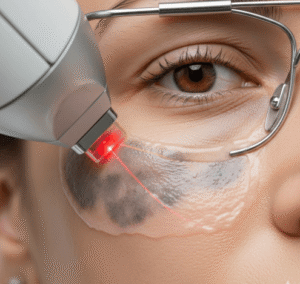Overview
Common Variable Immunodeficiency (CVID) is a rare primary immunodeficiency disorder characterized by low levels of antibodies (immunoglobulins) and an increased susceptibility to infections. Patients with CVID often experience recurrent respiratory and gastrointestinal infections. In Korea, specialized immunology and allergy centers provide advanced diagnostics, immunoglobulin replacement therapy, and long-term monitoring for CVID patients.
What is Common Variable Immunodeficiency?
CVID is a condition in which the immune system fails to produce adequate antibodies, leaving individuals vulnerable to infections. The exact cause is often unknown, though genetic factors may contribute. CVID can manifest at any age, but symptoms usually appear in childhood or early adulthood.
Symptoms
- Recurrent infections, especially:
- Sinusitis
- Bronchitis
- Pneumonia
- Ear infections
- Chronic diarrhea or gastrointestinal infections
- Fatigue and malaise
- Autoimmune disorders (e.g., autoimmune cytopenias)
- Enlarged lymph nodes or spleen in some cases
- Increased risk of certain cancers and lung disease
Causes
- Genetic defects affecting B-cell function and antibody production
- Dysregulation of immune system leading to reduced immunoglobulin levels
- Often idiopathic, with no clear family history in many cases
Risk Factors
- Family history of primary immunodeficiency disorders
- Recurrent infections from a young age
- Autoimmune diseases
- Chronic lung disease or gastrointestinal disorders
- Age: CVID can be diagnosed in children, adolescents, or adults
Complications
- Frequent and severe infections leading to organ damage (lungs, sinuses)
- Chronic lung disease (bronchiectasis)
- Gastrointestinal complications (malabsorption, chronic diarrhea)
- Autoimmune disorders (anemia, thrombocytopenia)
- Increased risk of lymphoma and other cancers
- Reduced quality of life due to recurrent illness
Prevention
- Early diagnosis and treatment to prevent severe infections and complications
- Avoiding exposure to infectious agents when possible
- Vaccination under guidance of immunologist (some live vaccines may be contraindicated)
- Maintaining good hygiene and healthy lifestyle to support immune function
Treatment Options in Korea
Treatment focuses on preventing infections, managing complications, and supporting the immune system. Korean immunology centers provide:
- Immunoglobulin Replacement Therapy
- Intravenous (IVIG) or subcutaneous (SCIG) immunoglobulin to restore antibody levels
- Reduces frequency and severity of infections
- Management of Infections
- Prompt use of antibiotics for bacterial infections
- Antiviral or antifungal therapy as needed
- Regular monitoring for early detection of complications
- Supportive Care
- Nutritional support and lifestyle modifications to enhance immunity
- Pulmonary rehabilitation for chronic lung disease
- Management of autoimmune complications













